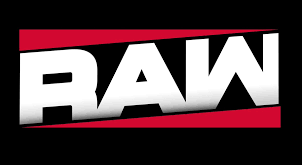In every UK and Scottish election since 1997 I have helped to write socialist manifestos. Many of the policies which were dismissed as extreme or unrealistic by the grey suited middle class ‘mainstream’ have gone on to become ‘mainstream’ solutions to societal problems.
Campaigning for re-nationalisation of the rail network and formerly publicly owned energy companies used to be dismissed as the politics of the past and unaffordable. Now these policies are at the heart of Corbyn’s Labour party and find favour within the SNP in Scotland. Public ownership is seen as the future not the past.
When the useful idiot hirelings of the billionaire owned press bleat about the ‘unaffordability’ of renationalisation programmes due to the need to compensate the present owners we should retort stridently that we support compensation and we can afford it.
We should compensate those who currently benefit from ownership of industries that decades of public funding paid for through a generous means tested scheme administered by specially trained former miners, steelworkers and pensioners representatives.
Let the Fat Cat bosses of the privatised rail network, the private operating companies and the various gas and electricity energy companies that now supply an essential commodity at inflated prices with poor service records subject their finances to a means test to determine whether they should be compensated for any losses when these companies are taken back into public ownership where they belong.
However the Compensation Scheme is devised, it must include the warning that discovery of exorbitant profit gains over the last few decades will result in a claw back of those ill-gotten gains. Ordinary folk conned into buying shares in former public industries have nothing to fear from a strict and fair Compensation Scheme. Their share purchases can be redeemed at a fair and reasonable price. The millionaire bosses and financial institutions that ripped us all off blind will however face bills to re-pay the public purse if they submit claims to the Compensation Scheme.
I often recall the sketch from the clever and politically tuned in impersonators ‘Bremner, Bird and Fortune’ team which summed up the Thatcher led privatisation programme throughout the 1980’s.
A friend meets up with his mate for a drink in the pub and is visibly glum. ‘What’s up with you’ his mate enquires. ‘It’s terrible’, he responds. ‘My car was stolen from outside my home last night’. ‘That’s bad luck’ says his mate. ‘It’s worse than that. The guy whole stole my car chapped my door this morning and offered to sell it back to me’. The mate is shocked. ‘But that’s theft’ he says. ‘No’ the friend retorts ‘that’s privatisation’.
Summed up in one short sketch was the reality of Thatcherite privatisation policy. They targeted essential industries like gas, electricity, the railways, telecommunications and water. These were industries which are essential in any civilised society. They were built up as public assets as part of the civilising process. Each privatisation was launched alongside slick and expensive advertising campaigns to convince the public of the advantages of privatisation and encouraging individuals to buy shares. Buy shares? They already owned the bloody industries. They were part of the public wealth. The devious advertising companies conned the public into buying something they already owned. These privatisations were theft plain and simple and reversing that crime is long overdue.
Any Compensation Scheme applied to returning these industries to the public wealth should be robust, firm and fair. Individual pensioners encouraged to invest their savings in these privatised industries should be compensated but the millionaire bosses often paid in share rights should face hefty repayment bills.
Essential industries like gas, electricity, water, railways, telecommunications and bus services should be viewed precisely like health care. They should be run for maximum public benefit not for private profits. Privatisation was theft from the public wealth, the selling off of the public silverware. They were deliberately undervalued to encourage maximum profits for the financial institutions and private consortiums that eventually got their hands on the shares and have milked the industries to the tune of billions ever since.
The 2013 privatisation of Royal Mail by the Tory/Liberal coalition government is an acute example of the privatisation folly and failure of government. Another essential industry was sold off to vulture capitalists who cashed in to the tune of millions within days when the undervalued shares were purchased in bulk and then sold on for obscene profits. Liberal Vince Cable and his Tory chums in government should be criminally liable for that disaster as the public purse not only lost Royal Mail but was short changed by at least £1 billion in the sale.
The fact Labour is now committed to returning Royal Mail as well as the essential industries privatised by Thatcher to public ownership and the SNP is investigating the feasibility of a publicly owned Scottish Energy company is welcome, progressive and long overdue.
I don’t believe every business or service should be publicly owned but those which are basic essentials of everyday life should be. That clearly includes gas, electricity, water, telecommunications, public transport, the mail service health and education at the very least. The great privatisation swindle has to be radically addressed and reversed.
The views and opinions expressed in the article do not necessarily reflect those of Sputnik.



